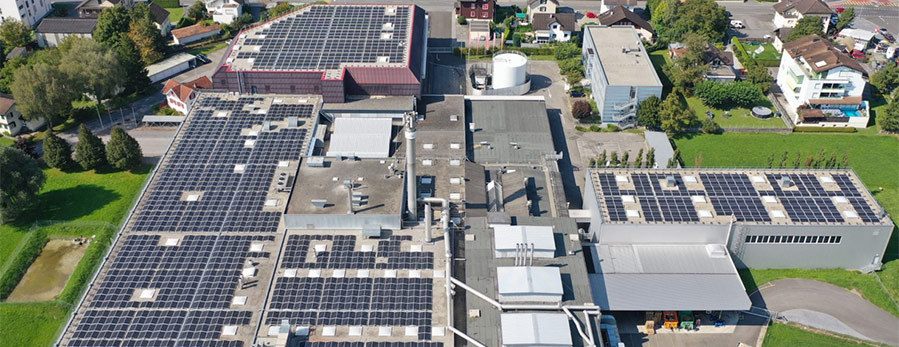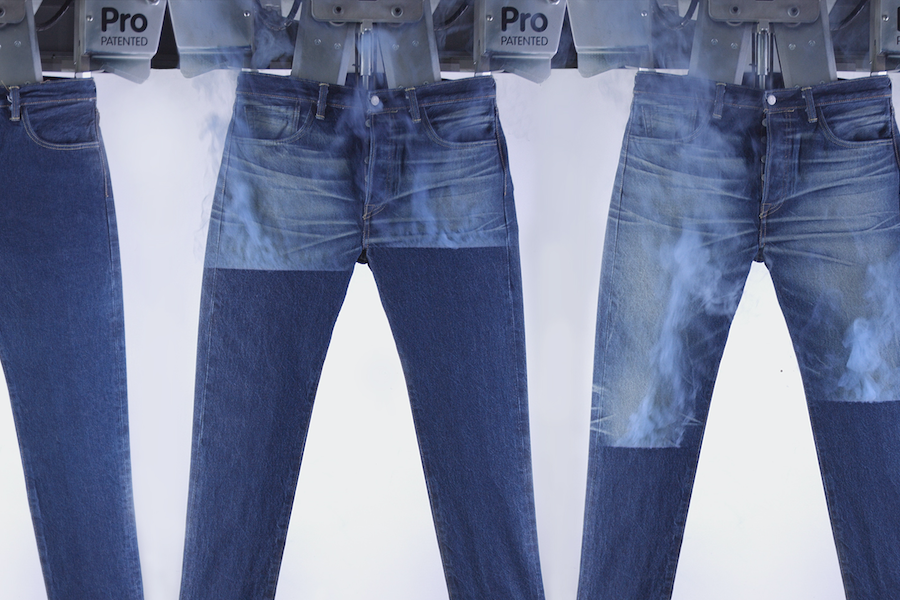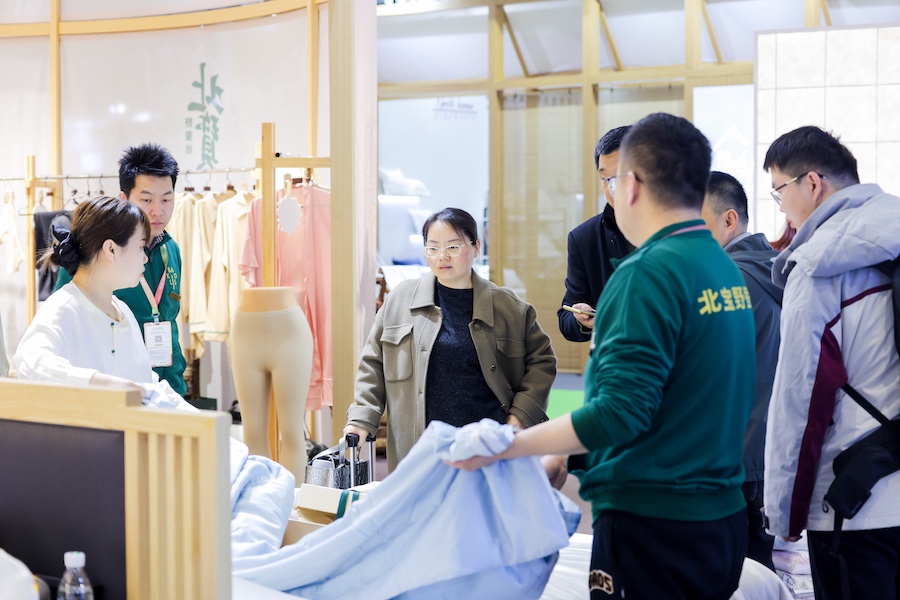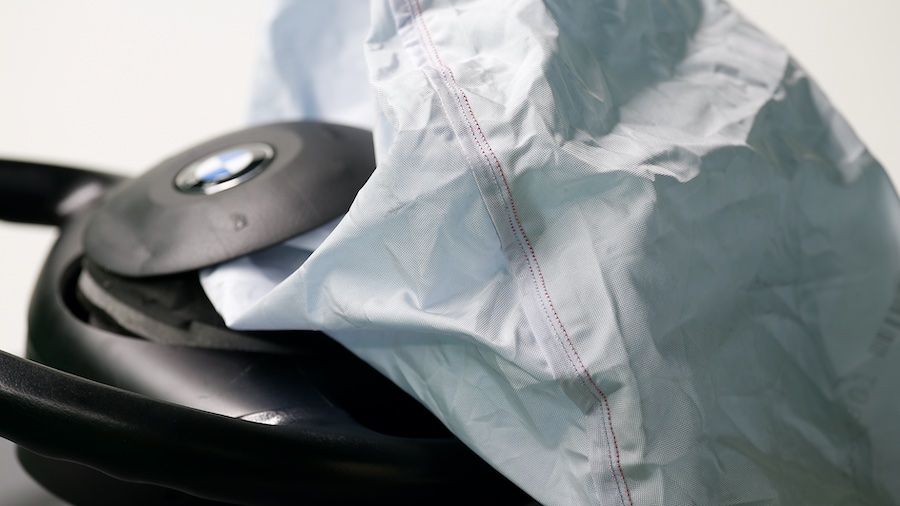#Sustainability
Schoeller trusts in solar energy

The first annual operating figures for the photovoltaic plant, installed in 2019 on the roofs of Schoeller Textil in Sevelen, were just made available in February 2021. “At 950,000 kWh, we have exceeded the anticipated average annual output of 865,000 kWh by around 10 percent,” reports Rolf Landolt, head of engineering at Schoeller, with evident pride. The annual production of the 2,838 solar modules equates to the average energy consumption of approximately 238 households (at 4,000 kWh per household).
85 percent for the company’s own requirements
Of the 950,000 kWh / year produced, Schoeller is able to consume 85 percent for its own needs and can thus able to enter around 85,000 CHF per year in its books. The remaining 15 percent is fed back into the electricity grid and used by external consumers. The calculations show that not only does the use of solar energy benefit the environment, the plant will have paid for itself within seven to eight years.
“The intention behind the rather substantial investment of approximately 700,000 Swiss francs was to reduce the high electricity costs with the aid of a sustainable energy source,” explains Siegfried Winkelbeiner, CEO of Schoeller Textil AG. “The decision to invest in a more ecological future was taken as far back as November 2018, but a partial refurbishment of the roof was brought forward before the solar panels were installed.” The professional installation of the photovoltaic plant was carried out by the local specialists Heizplan from Gams.











